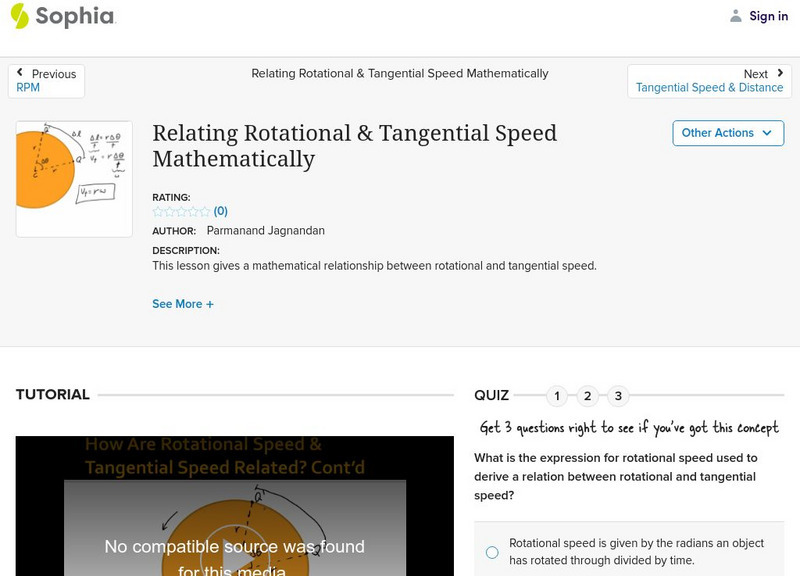Concord Consortium
The Concord Consortium: Molecular Workbench: Motion Conversion
View the conversion of linear motion to rotational motion.
Concord Consortium
The Concord Consortium: Molecular Workbench: Linkages
View several examples demonstrating that rotational motion may be transformed into straight-line motion.
Concord Consortium
The Concord Consortium: Molecular Workbench: Overshot Water Wheel
View a simulation of water moving over the top of a water wheel and causing it to move demonstrating the conversion of energy.
Concord Consortium
The Concord Consortium: Molecular Workbench: Undershot Water Wheel
View a simulation of water flowing under a wheel that causes the wheel to rotate. Energy from the water is transferred to the wheel.
Concord Consortium
The Concord Consortium: Molecular Workbench: Rotating Drum Mixer
Adjust the rotation in this simulation to see how particles of fluids move.
Sophia Learning
Sophia: Placement of the Center of Mass
This lesson explains why the center of mass might not lie within an object.
Learn AP Physics
Learn Ap Physics: Physics B: Circular Motion
A site dedicated to help students prepare for the AP Physics B test. This specific site reviews circular motion including uniform circular motion, torque, rotational statics, gyroscopes, moment of inertia, and static equilibrium. Site...
Sophia Learning
Sophia: Relating Rotational & Tangential Speed Mathematically
A video lesson relating rotational speed and tangential speed. Video derives equation to show how to find tangential speed based on rotational speed. [4:32]
Science Struck
Science Struck: Understanding the Gyroscopic Effect
Explains what a gyroscope is and the physics behind how it works.
Mocomi & Anibrain Digital Technologies
Mocomi: Types of Motion
Learn about the study of mechanics, motion, the laws of motion, and the different types of motions.
Science and Mathematics Initiative for Learning Enhancement (SMILE)
Smile: Lab Activity, Rotational Inertia
A lab activity in which students observe the rolling of objects along an inclined plane. The the rotational inertia of the objects are compared based upon their acceleration along the incline. Directions and assessment ideas are given.











